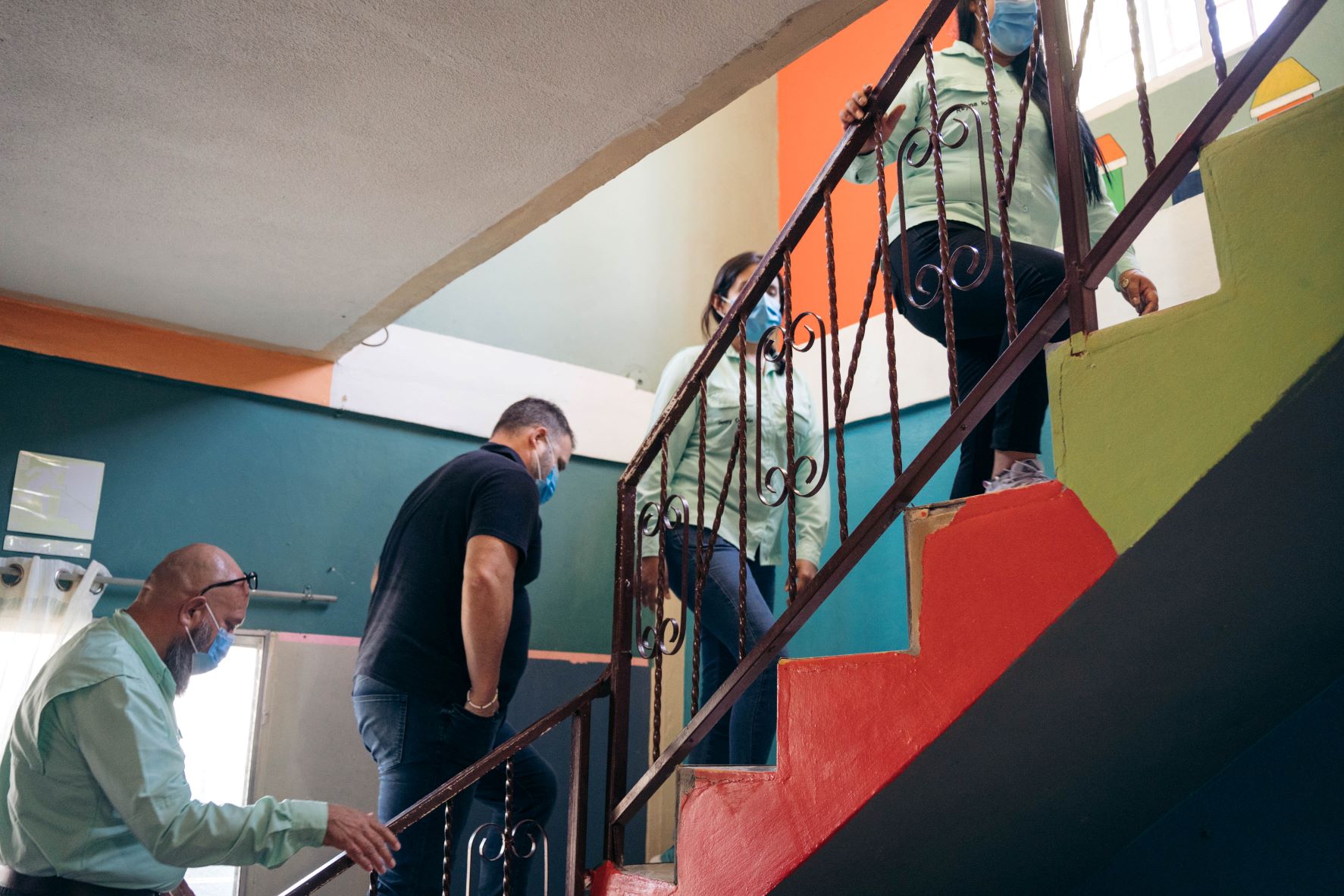This past January, we traveled to Honduras with Horizon’s Board of Directors. The trip reawakened our awareness by granting us direct experience with circumstances and environments that those who work on the ground know all too well. The kind of situations that quicken your heart with horror, knot your throat with confusion and blanket your body with goosebumps of generational pain and suffering.
This trip brought us, in many various ways, face to face with the collateral damage of poverty, and leaving us gasping for air from such a sucker-punch of reality.
We’re familiar with many paths of empowerment at Horizon: education, positive parenting, grants and micro-loans for business, temporary and permanent housing, food programs, training, and mentorship are just a few.
There is yet another dimension of empowerment — one that we cannot show visually because the people affected are too vulnerable. It would be an affront to their human dignity and protection to do so. But even that which we cannot show, we can surely talk about. Especially when we have a direct experience.
The experience standing out in my mind was a visit to Fundacion Angeles de la Tierra. I’d like to share about this, but warn that what I share is not easy to read and hold as a very true reality for orphaned, vulnerable children and at-risk youth. And while there are photos offered here, they are offered as a container but purposely do not show the children who dwell in this place.
When we arrived at Fundacion Angeles, we entered a house where multicolored painted walls and hand-painted emojis beamed with playfulness. In the immediate common sitting area sat a young girl, approximately 12 years of age, breast feeding her baby. But this wasn’t just her baby, this was also her brother. She had been raped by her father and had become pregnant. Her situation caught the attention of someone who could help and immediate intervention was given. She, along with her baby and brothers, were welcomed into this home, into this safe place.
But, she wasn’t the only one.
Another young girl in pink, with her hair tied back and held in place by two beautiful barrettes, approximately 11 years of age, stood with her left hip jutted out just so holding her nearly one year old baby and sister. She too had been raped by her father multiple times and became pregnant.

Cradling a baby who had been abandoned at birth

Spending intentional time chatting with the girls, we quickly learned not only their situation but also their greatest stress. When asked the question, “what more help would you like?” their simple and yet anxious response was, “please let us go home. Our mother is there. We have to protect our mothers.”
Let’s just stop here.
Take a breath.
Eleven and twelve-year-olds, who became mothers because they were raped by their fathers, desired to go back to their home of origin so that they could protect their mother from their father.
Enter sucker-punch here.
A flurry of emotions coursed through our bodies, hearts and minds as this experience unfolded.
What are we supposed to do? Where do we go from here?
I have only two ideas. One is to stop and acknowledge the fact that we, collectively, can bear witness to profound tragedy in the world around us, and when we do, we also bear responsibility — responsibility not to look away but to name the injustice for what it is and seek a different, better way forward.
No person — let alone a pre-teen girl — should be raped. We know this. So, how are we responsible? Or, put differently, what opportunities are within reach to pursue a better way forward for girls like these?
Sometimes, the opportunity before us is simply advocating for the people already forging this better path. The caretakers at Fundacion Angeles are one such group of people: providing a way out of child abuse and a safe place to live.
I can tell you that empowerment is usually a sure sign of a better way. We don’t have all the answers — but we are sold out on one thing: empowerment saves lives. And when we pursue it, it will lead us straight into some of humanity’s greatest discomforts.

You can join in advocacy for the empowerment of the world’s disinherited.
There’s a network of people all around doing this very work. Some of them work in colorful rooms covered in youthful paintings. Others have classrooms. Still others’ surroundings are dimmer — they themselves are the brightness.
As we left the children’s home that day, I remained sure of one thing: empowerment is worth it. It is worth our discomfort; it is worth the messiness of human lives. Even if we are not there to see its fulfillment.
Written by Nicole Scott and Sarah Pryor

